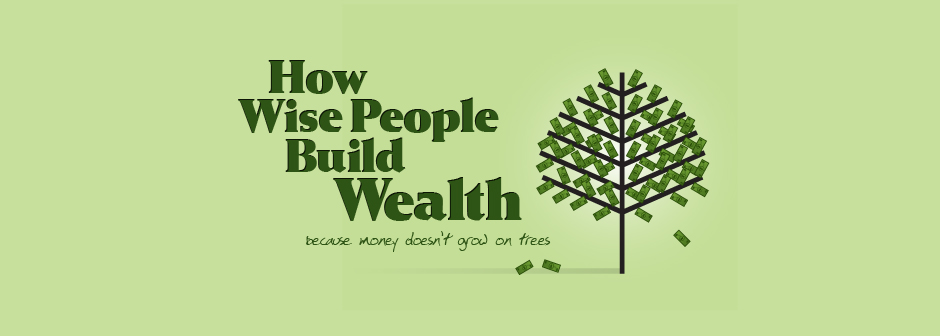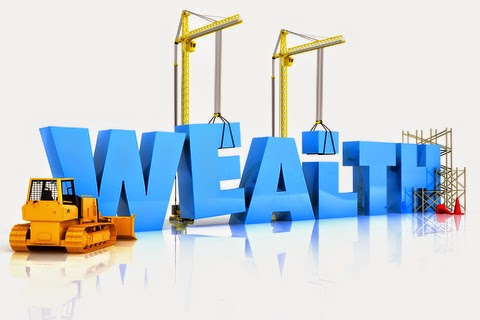
Many people desires great wealth, but the question is ‘How many of us desiring wealth are actually working toward acquiring the wealth we wanted’? Few, very few. Many desired wealth greater than that of the wealthiest man who ever lived, but hardly do they work toward serious wealth building their dreams.
Mandela said in one of his quotes that wealth and poverty are two different choices from which we choose. Wealth is like a profession that you must have adequate knowledge of – you can’t become an Engineer without being trained as one, you can’t become a Pilot without passing through the school of aviation, neither can you become Geologist without having adequate knowledge of solid or liquid matter that constitutes the earth. The same goes for wealth, you can’t simply be wealthy if you don’t have adequate knowledge of wealth building or how to create wealth and sustain it.
What Is Wealth?
Lot of people have shallow knowledge of what the word “Wealth” means. Some desires to be wealthy just because they think their life will be better of, without understanding what it means to be wealthy. I’ll start with the dictionary meaning of wealth.
Wealth is defined as:
Noun:- A great quantity or store of money, valuable possessions, property, or other riches.
Economic:- Anything that has utility and is capable of being appropriated or exchanged. Utility an economic term referring to the total satisfaction received from consuming a good or service. Or the state of being useful, profitable, or beneficial.
Wealth is more than the amount of money you have in the bank(s) or at hand, it extends to all the valuable things one has and even far beyond the objects one can see. King Solomon is regarded as the wealthiest not only because of his riches, in addition to his riches, he was very intelligent and wise. Having adequate knowledge or skills to earn, is wealth as well, as long as you can exchange your knowledge or skills for money. Robert T. Kiyosaki defined wealth in his own way, he said, ‘Wealth is not the amount of money one has but the duration of time it spends in your possession’.
Am not an expert or wealthy yet, but am one of those learning how to be wealthy beyond monetary aspect alone. Leaving good legacy behind, to me is also wealth.
How Do I Start My Wealth Building?
This article can’t teach you all you need to know about wealth creation but will be another eye opener for readers. Many of us have read several books on how to make money or how to become a millionaire, billionaire etc. Some authors do advice readers to pay themselves first while others do skip this piece of advice. I myself do wonder what it means to pay myself first and kept asking how do I pay myself? I got the answer and the concept of paying oneself first shortly after reading ‘The Richest Man in Babylon’.
The Concepts Of Paying Oneself First
When you ask people if the salary or wages they earn at the end of the month or work done is 100% theirs, their answer will be yes. But you are wrong if you don’t pay themselves first. Let me break it down and tell you why the money you earn isn’t yours until you start paying yourself first.
When you receive your salary at the end of the month or your wages at the end of the service you rendered, the next thing that comes to your mind is paying your bills or satisfying your wants. You will settle the electricity bill, water bill, school fees, go shopping, replenish your wardrobe, fix damaged furniture, etc. The money you spent doing these things are not going back into your pocket, you sure know that, at the point of exchange it belongs to someone else.
The rest will surely be spent on transport and feeding until nothing or little is left before the next payment is done. Even if you save some of the money in the bank or using other savings method, you still didn’t pay yourself if at the end of the day you exhaust it.

How to build wealth
You will pay yourself first by saving nothing less than 10% of the amount you earned either on monthly, weekly or daily bases. This method may seem impossible because of the stack of bills you have to settle, it is however, the best you pay yourself first before settling every other bills. Paying yourself first is the first bill you must pay.
Some do wait till the end of the month before saving the left over, am not condemning this act, but it has its shortcomings – you won’t have anything to save when there is no left over, and it will become more difficult to save when expenditure increases.
Paying yourself first is very beneficial, and the benefits are as follows:
When you pay yourself first, you are mentally establishing savings as a priority. You’re telling yourself that you are more important than any other thing. Building savings is a powerful motivator — it is empowering.
Paying yourself first encourages sound financial habits. Saving regularly makes you plan the way you spend your earnings wisely. Paying oneself takes a long time to develop as an habit because it has no immediate gratification.
By paying yourself first, you’re building a cash buffer with real-world applications. Regular steady contributions are an excellent way to build a nest egg. Paying yourself first gives you freedom — it opens a world of opportunity
By paying yourself first, you are saving for the future. When you start paying yourself first, you start making plan for the future when you won’t be able to work anymore.
How Do You Pay Yourself First?
The process of paying oneself first has been made easy in this era of technology. These processes offers the best method in such painless manner, invisible and automatic. Many companies include retirement plan in their employees payment plans. One thing you must not forget is that your savings should be tied to goals – either immediate goals like buying a car, a house, studying, re-investing it into your business etc. or long term goals like retirement plan, establishing your business, planning for your children future, etc.
Here are three ways to start the process of paying yourself first:
- If your employer offers a retirement plan (most companies now offer compulsory retirement plans) — enroll as soon as possible, especially if the company matches your contributions.
- Open a high interest savings account at a bank – Set up automatic transfers into this account, either directly from your paycheck or from your regular bank account. Treat these transfers like you would treat any other financial obligation. This should be your first and most important bill every month.
- Direct depositing is another way to go. For those who are self-employed, it’s hard to determine the amount to pay from month to month because the income is not fixed. There are times that they will earn much in a month and other times that they will earn very little. It should be at the back of your mind that no matter the amount earned, you must pay yourself. So, such person should have a bank account where he deposits his payment.
If 10% will be too much for you as a starter, you may start with an amount that is convenient for you. What you should not fail to are – never fail to save and never forget to increase the % as time goes on. And in case of those who earn big, you may save more than 10% and if at the end of the month you have something left you may save that as well. It will serve as a booster to your savings.
Financial peace isn’t the acquisition of stuff. It’s learning to live on less than you make, so you can give money back and have money to invest. You can’t win until you do this. –Dave Ramsey
https://www.wealthresult.com/2014/11/pay-yourself-first-first-law-of-wea.html
Wanna be a wealthier person?
Tell us about it.....




No comments:
Post a Comment